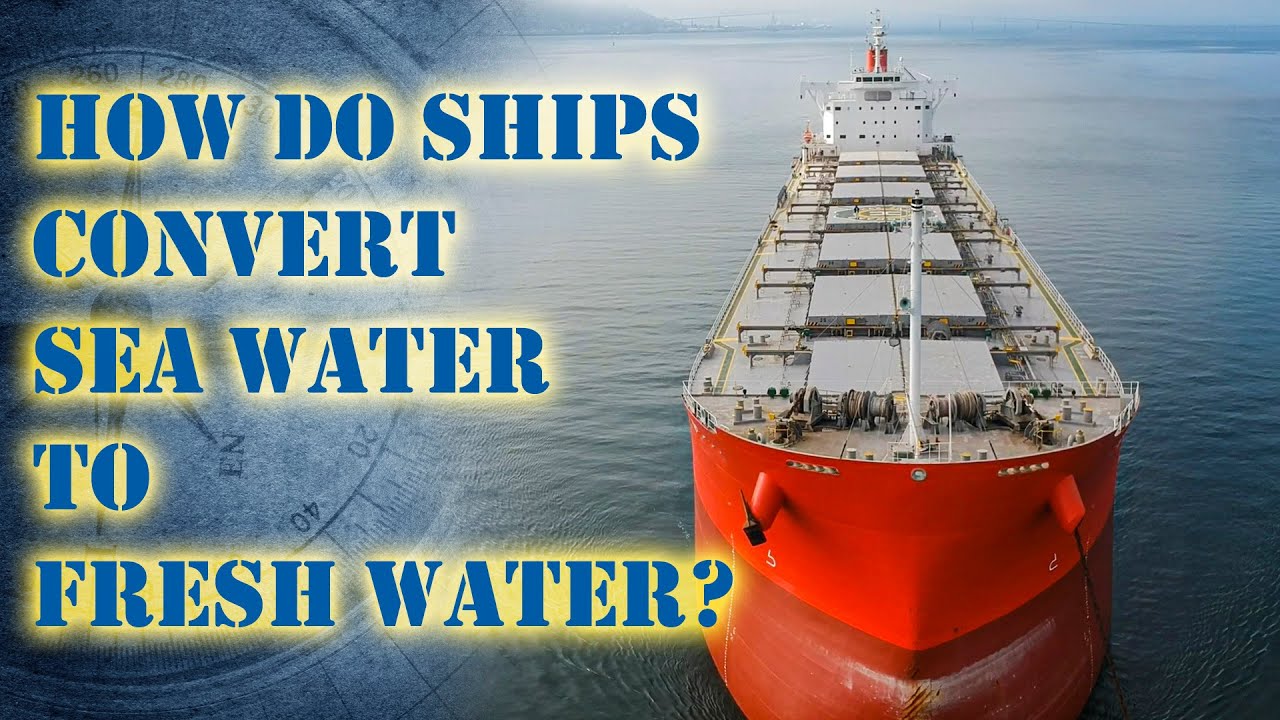Insight: Ship Pollution
Summary
TLDRThe video script from 'Inside' explores the environmental impact of ocean-going vessels, particularly cruise ships and container ships, which emit pollutants at alarming rates. It highlights the health risks posed by emissions near ports and the disparity between the fuel quality used in ships and cars. The script also touches on the slow industry response to cleaner technologies and the lack of stringent regulations, suggesting consumer pressure as a potential driver for change.
Takeaways
- 🌊 Marine vessels, including container ships, tankers, and cruise ships, are significant contributors to global pollution, with emissions sometimes exceeding those of all the world's cars combined.
- 🚢 The 'Harmony of the Seas,' the world's largest cruise ship, is a floating town with nearly 3,000 state rooms and can burn up to 4,900 liters of fuel per hour, leading to substantial emissions.
- 🏭 Ships often use low-grade, dirty diesel fuel, known as bunker fuel, which is high in sulfur and other pollutants, contributing to health issues like asthma and COPD.
- 🌿 Cruise ships, when at sea, emit pollutants that can have a larger environmental impact than the emissions from several million cars, including sulfur and nitrous oxide.
- 🏥 The pollution from ships can affect local air quality, posing health risks to communities living near ports, including exacerbating respiratory conditions in children and adults.
- 🛳️ Large container ships, such as the 'Maersk Triumph,' can emit pollutants equivalent to 50 million cars in a year, highlighting the scale of the issue.
- 🌍 The shipping industry is under pressure to upgrade fleets to be more environmentally friendly, but economic challenges have slowed these efforts.
- 📋 The International Maritime Organization is implementing restrictions to reduce sulfur content in ship fuels by 2025, aiming to decrease pollution.
- 🌿 Environmental groups criticize the cruise industry for not adopting technologies that could further reduce pollution and for lacking transparency about environmental practices.
- 💨 Air pollution from international shipping is estimated to cause 50,000 premature deaths per year in Europe, indicating the severity of the health impact.
- 🔍 Enforcement of shipping emissions regulations is challenging due to the international nature of the industry and the difficulty in monitoring ships at sea.
Q & A
What is the main environmental concern raised by the script about ships?
-The script raises the concern that ships, particularly large container vessels, tankers, and cruise ships, are significant contributors to air and marine pollution, emitting more pollutants than all the world's cars combined.
How does the size of a cruise ship like the Harmony of the Seas compare to a town?
-The Harmony of the Seas is so large that it has the power demand of a 50,000-population town, indicating its massive scale and the potential for significant pollution.
What type of fuel do large ships typically burn, and why is it a concern?
-Large ships typically burn low-grade, dirty diesel fuel, known as bunker fuel, which is high in sulfur and other pollutants, leading to serious environmental and health concerns.
What are the health implications of the pollution caused by ships as mentioned in the script?
-The pollution from ships can cause or exacerbate respiratory conditions such as asthma and COPD, affecting both adults and children, especially those living near ports.
How does the pollution from one cruise ship compare to that of cars in terms of sulfur emissions?
-One cruise ship can emit more sulfur than several million cars, highlighting the disproportionate impact of these large vessels on air quality.
What is the International Maritime Organization doing to address the issue of ship emissions?
-The International Maritime Organization is implementing restrictions that will require all ships to comply with lower levels of sulfur fuels by 2025.
What is the role of consumer pressure in encouraging the shipping industry to reduce pollution?
-Consumer pressure can influence the shipping industry to adopt cleaner practices, as consumers are increasingly aware of the environmental impact of their choices, especially in sectors like cruise lines.
How does the script describe the fuel used by large ships as compared to car fuel?
-The script describes the fuel used by large ships as the 'bottom of the barrel' of refinery scrapings, high in sulfur content and not heavily refined, unlike the cleaner fuels used in cars.
What is the significance of the court decision mentioned in the script regarding illegal dumping by ships?
-The court decision signifies that there are legal consequences for ships that do not adhere to environmental regulations, and it suggests that illegal dumping may be more widespread than known.
Why is it difficult to regulate and enforce environmental standards for ships at sea?
-Regulating and enforcing environmental standards for ships at sea is difficult due to the vastness of the oceans, the international nature of shipping, and the lack of resources for constant monitoring and surveillance.
What are some of the alternatives to low-grade diesel that the shipping industry could consider to reduce pollution?
-The shipping industry could consider using better adapted engines, higher grade fuels, and cleaner alternatives to low-grade diesel to reduce their pollution levels.
Outlines

This section is available to paid users only. Please upgrade to access this part.
Upgrade NowMindmap

This section is available to paid users only. Please upgrade to access this part.
Upgrade NowKeywords

This section is available to paid users only. Please upgrade to access this part.
Upgrade NowHighlights

This section is available to paid users only. Please upgrade to access this part.
Upgrade NowTranscripts

This section is available to paid users only. Please upgrade to access this part.
Upgrade NowBrowse More Related Video

How cruise ships got so big

Different Types and Sub-Types of Merchant Ships

MARITIME ENGLISH - TYPES OF VESSELS - PART 1

How Ships Convert Sea Water to Fresh Water | Chief MAKOi Study Call Ep 04

Multi-Purpose Heavy Lift and General Cargo - Introduction to upcoming lectures

50 Insane Facts About Cruise Ships You Didn’t Know
5.0 / 5 (0 votes)